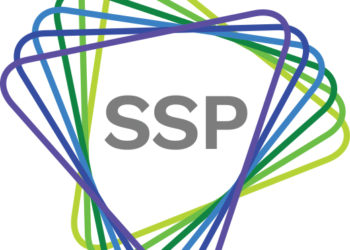In celebration of the Scholarly Kitchen’s 10th anniversary, we thought we’d explore the Chefs’ motivations to write for the blog. The Kitchen has grown in activity and engagement significantly in its first decade (as judged by views, comments, repostings, and social media mentions). It has become both a venue folks value and find informative and also one that can spark passionate disagreement. As your read the Chefs’ responses, think about why you read the blog or why you comment. We want to hear your motivations too!
This month we asked the Chefs: Why Do You Write For The Scholarly Kitchen?

Joe Esposito: Well, you have to write somewhere.
Alice Meadows: I started writing for The Scholarly Kitchen in 2012 because Kent (then Editor-in-Chief) mentioned at an Society for Scholarly Publishing (SSP) Board meeting that there weren’t enough Chefs. He was especially keen for more women to contribute because there were only a couple at that time, neither of whom were contributing regularly. I was at a point in my career where I wanted a new challenge — I was turning 50 and wanted to push myself outside my comfort zone. I had always loved to write, but had never written much professionally other than marketing copy and reports. So I volunteered (somewhat to Kent’s surprise, I think), immediately regretted it (too late!), hoped that my then company would disapprove (they didn’t), and so had to face my fears and actually write my first post. It took forever, and went through many iterations and multiples reviews before I dared hit submit (thanks to Phil Davies, Tom Pold, Susan Spilka among others for bearing with me!). But the post published, the comments were an interesting mix of opinions, and the sky didn’t fall. I started to think about the next post, and the one after, and the one after that. And I started to find my voice.
Today I have a long list of motivations for writing for the Kitchen. Pushing myself to think properly about key issues in scholarly communications; being able to draw attention to those that may otherwise get overlooked; hoping I can bring a different perspective that might be interesting to others; benefiting from hearing other people’s perspectives — in the comments section, in the back chat between the Chefs, and in other conversations; continuing to hone my writing skills and develop my voice; encouraging others to find theirs; and more.
At 10 years old, The Scholarly Kitchen is a blog that – love it or loathe it – helps shape the conversation around scholarly communications.
At 10 years old, The Scholarly Kitchen is a blog that — love it or loathe it — helps shape the conversation around scholarly communications. Contributing to it is a privilege and a pleasure, and just occasionally a pain when I’m rushing to meet a (usually self-inflicted) deadline!
Kent Anderson: I started the Kitchen and have written more than 1,200 posts over the past decade. That comes out to 2.3 every week, with a higher rate in the early days — when the Kitchen started, I was writing a post every weekday. I still write 2-3 posts per month on average.
Why do I do it? Because as a wag once noted, “writing is nature’s way of making you think.” I intuited this long ago, and have been banging out my thoughts since elementary school — on old electric and manual typewriters, Tandy computers, an Apple IIc, the first Mac, and on and on. One of my favorite jobs in college was rewriting UPI wire stories to fit, which involved typing them into the compositing system while making decisions on the fly about what to leave in or excise. Twitter is child’s play compared to that.
If I want to figure something out, I write about it — either in a personal document or, over the past decade, in a blog.
If I want to figure something out, I write about it — either in a personal document or, over the past decade, in a blog. Expository writing comes naturally. Reading non-fiction is my related preference, because truth is so often stranger than fiction. So it’s a virtuous cycle for me.
So, I write because I like to, because I selfishly benefit from accelerating my own understanding of things that confuse or confound me, and because I’ve done it so much for so long that it comes easily.
Rick Anderson: I write for the Scholarly Kitchen because it gives me an unparalleled forum for discussing issues that are of interest to me in a timely way and with a large number of people. I love having the freedom to think through these issues in a freer and less formal way than would be possible in a journal, and being able to respond to events in something close to real time. And I truly appreciate being able to have actual discussions with commenters, rather than simply putting a statement out there in the form of a formal article and then waiting to see whether someone will write a letter to the editor or whatever. I guess that’s probably what I value the most about writing in the Kitchen: it’s a conversation, not just a monologue.
Charlie Rapple: That’s a good question, and one I find I ask myself from time to time. Scholarly Kitchen writers are quite a diverse bunch, and sometimes I find it frustrating to be associated with other people’s points of view (there is definitely a prevailing image of the Scholarly Kitchen and what it stands for, among researchers in particular, which doesn’t reflect who I am or what I stand for). But that’s pretty much why I do it: I want to change scholarly communications, and I’ve always figured that you’ve got a better chance of changing something from the inside (from a position of knowledge and trust) than from the outside (where you’re vulnerable to ignorance and scepticism). I want to change perceptions of publishers, not by trying to change the people who have those perceptions (“the user is not broken” — oh wow, 12 years since Karen Schneider wrote this awesome posting, which applies as much to publishers as libraries) — but by trying to change those things about publishing that undermine its ability to add value and be valued. The Scholarly Kitchen is a great platform for me to share alternative narratives and ideas.
Expressing idealistic thoughts helps expand the boundaries that otherwise limit our more realistic dialogue and activity.
And yes, I know that’s idealistic. That’s another reason I write for the Kitchen –– because it’s a great context in which to explore and firm up far-fetched thoughts. Expressing idealistic thoughts helps expand the boundaries that otherwise limit our more realistic dialogue and activity. Which relates to another reason I write for the Kitchen — to stretch myself. When I was invited to join the group, I was very, very nervous about putting my head over the parapet, anxious that I would be masquerading as some kind of expert, and exposing my ignorance to an audience ready to criticize. But I quickly found that the audience was welcoming and full of useful counter-contributions, and that my fellow Chefs share a lot of my anxieties, feeling the fear and doing it anyway. Writing for the Kitchen not only helps me progress my thinking on the topics I write about, but also helps develop my communication skills, my confidence, my profile – and my thick skin.
Sian Harris: The Scholarly Kitchen provides an important comment space in the research communication sector with a range of perspectives shared in the posts and lively and often insightful discussion in the comments.
As Alice said in her recent post, the Kitchen has been focusing on increasing diversity. I think this shows in the greater range of perspectives in the posts today (we definitely don’t all agree all of the time!).
I write for the Kitchen for two reasons. The first is personal: I enjoy writing, sharing ideas and telling stories. I believe in the importance of communicating research and recognize that this process has many complex layers that need intelligent consideration in order for research to be disseminated effectively.
The second and more important reason is about the Kitchen’s drive for diversity. Although eagle-eyed readers will notice that I am white and British, my role as a Chef is not about me, but about sharing the experiences, challenges and perspectives of the many inspiring researchers, librarians, journal editors and policymakers from Africa, south Asia and Latin America that INASP works with on a daily basis. These voices (for example, here) are so important to include in discussions about scholarly communication and so important to listen to if we want research to truly be global and to truly make a difference to tackling global problems.
Lisa Janicke Hinchliffe: As the newest Scholarly Kitchen Chef, I very recently responded to the invitation to join the group and spent quite a bit of time pondering this very question. In sum, writing for the Kitchen is an opportunity to influence the broader conversations in scholarly communications, libraries, and publishing. My goal is to bring my expertise in user education and experience into closer dialogue with product design and workflow development so that we can collectively better serve scholars and learners. It has been a very rewarding experience already and I look forward to our continued discussions and debates.
My goal is to bring my expertise in user education and experience into closer dialogue with product design and workflow development so that we can collectively better serve scholars and learners.
Robert Harington: Why do I write for The Scholarly Kitchen? For me, and I suspect this is true for my Chef colleagues, there a quite a number of motivations in play. Writing for the the Kitchen, I feel I have a voice. I am free to tackle any subject, talk to anyone, and tease out a viewpoint on a subject, or person. I write as I think as I speak. Having a chance to express that voice is tremendously rewarding. Preparing a blog post presents multiple challenges. The broth must contain a few key ingredients – intellectual rigor, good writing, sense of balance, provocative ideas, and an openness to critique. It is not easy, and that is part of the fun, and yet hopefully the range of voices in the Kitchen allows readers to savor all of these ingredients
Lettie Conrad: So many reasons! First, I love to write and I take every possible opportunity to practice the craft. Secondly, I love to be part of SSP’s community of mindful, intelligent, and compassionate professionals, where being a Scholarly Kitchen Chef offers unique opportunities every day to engage on topics of interest to our industry. These two factors come together to form a regular outlet to learn from our peers around the world and break out of my everyday routine. Contributing to the Kitchen pushes me out of my comfort zone, challenges me to think differently, and encourages me to consider diverse perspectives. When I start a draft post, I rarely find myself at the conclusion I had planned originally, as the process allows me to stretch my writing and analytical skills. Writing for the Kitchen requires bravery, as we must be willing to be wrong or uncertain, and it is a place filled with supportive peers who always make my work better. Writing for the blog is a lot of fun, too, as the Kitchen is filled with some of the coolest cats in scholarly publishing!
Judy Luther: The process of writing a post prompts me to focus on a topic and usually conduct at least a little research in the form of content or conversation with a colleague to more fully understand a service, innovation or industry development affecting the community. This is frequently a fruitful exercise. As a consultant, I both want and need to know the implications of the changes taking place. Some are obvious, or I have a perspective that is easily developed. More often, however, I need to dig a little that that is productive use of my time. While there is a wide range of opinions among the Chefs and expertise in different areas, I value the respectful and humorous culture in the Kitchen. Sometimes it gets a little hot, but that too can be useful as a way to provide additional clarity on a different angle. There isn’t that much ‘back chatter’ among the Chefs, but I value the insights that emerge when we do go back and forth on an issue. The structure of the SSP’s Kitchen Cabinet has provided useful oversight, so we have well thought out policies and capable leadership in our Head Chef – David Crotty.
Blogging did not come naturally to me as much of my writing has been based on research. So, I will confess that being able to express my opinion has helped me find my voice in front of a very public audience that is usually well behaved. At the end of the day, it’s the dialog with the readership that is rewarding. The exchanges elicit different views on a topic and feedback that broadens the context. All in all, it’s been a rewarding experience.
Angela Cochran: I work for a self-published society that is not too big and not too small. We do good things with few resources and produce an enormous amount of good content. Often my perspective in the Kitchen can be different than what is being talked about in the halls of the commercial publishers or around water coolers at very small societies. That said, I try to bring a balanced perspective to society publishing. I am often frustrated with the “all publishers do x” rhetoric because it’s not true. In some ways our processes are mostly the same but the environment in which we do them is different.
There have certainly been industry initiatives that benefit commercial publishers and very large societies disproportionately. I try to share my thoughts on why these initiatives may prove to be challenge for society publishers.
Lastly, I enjoy working at an engineering society. There is an assumption made that all journals are like medical journals and all societies are like large biomedical societies. This can’t be further from the truth. There is no one-size-fits-all for society publishers and I appreciate the opportunity to advocate for those of us that are different.
There is an assumption made that all journals are like medical journals and all societies are like large biomedical societies. This can’t be further from the truth. There is no one size fits all for society publishers and I appreciate the opportunity to advocate for those of us that are different.
I write for The Scholarly Kitchen because there needs to be a diversity on perspective and I hope that I contribute in that way.
Karin Wulf: I write for The Scholarly Kitchen because they asked me to. That’s the truth; pieces I’d been writing and events I had been organizing around scholarly communications issues for humanists (especially historians) caught the eye of the Editor. But I keep writing because it’s a tremendous privilege to write in this space, and I want to use this opportunity to try and represent the perspective of humanities researchers and society publishers.Understandably, Kitchen Chefs generally write about the major issues and innovations in scholarly communications. Most of these issues, and most innovation, are driven by the needs and interests of the high output and high investment research fields very far from my own. But the impact on fields like mine is significant. Open access is only the most obvious, but far from the only example of a movement that picked up steam as a reaction to costs in one sector, and has developed into a multivalent movement with diverse motivations and implications across fields. Some commenters, for example, harrumphed when I wrote about an open access monograph program, launched by the Institute for Historical Research, that any program that small wouldn’t have much impact. But impact where, and for whom? I’ve got a post cooking about scale, and whether scaling up, or the enticing prospect of scaling up, is limiting a lot of potential innovation, especially for humanists. The humanities are a key driver of research and scholarship essential to any historical moment, but without a doubt critical to this one. We need suitable, humanties-specific, communications infrastructure.
Another reason I write for the Kitchen is because engaging with the issues driving scholarly communication and information economy more broadly is generative. Why does anyone write? To think!
Ann Michael: The Chefs have covered the landscape including personal reasons (clarifying thoughts, getting feedback, learning) and industry reasons (diversity of views, influencing/participating in the conversation). I’m not unlike the rest in that, I too, want to learn and participate. For me, I highly value community — that’s one reason that I volunteered for Ask The Chefs. My hope was that, more than surveying the Chefs on a topic, that the Chefs’ answers would be a catalyst for comments and participation from the community, anyone with knowledge, experience, or just an interest in scholarly communications.
In my opinion, that is the point of the blog and why I write for it — creating a venue for discussion, discourse, and respectful disagreement. There is no progress without conflict. Conflict is neither positive nor negative — it simply is. How we handle conflict is what makes it positive or negative. So I am in this for positive conflict – let’s talk about things, even the difficult things. Let’s embrace the experienced, the curious, and the idealistic. I’m not asking folks to suspend reason, but to expand tolerance for opposing views. That’s why I’m here!
Now it’s your turn: Why do you read, comment on, or share Scholarly Kitchen posts?
Discussion
10 Thoughts on "Ask The Chefs: Why Do You Write For The Scholarly Kitchen?"
I contribute regularly to the Comments section of the blog in part becxause so much of the conversation here focuses on STEM journals, and it is useful to remind people once in a while that book publishing operates differently in important respects. E.g., the review process is quite different in many ways. While peer review plays the major role in both, in book publishing the staff editor’s role is significant and has no counterpart in journal publishing. Conversely, the journal editor’s role has no direct counterpart in book publishing except when a book publisher has a scholar editing a book series. Arguments are often made on TSK that do not keep these differences in mind, and I fear that people outside the publishing industry who stray into these pages, including scholars, may be misled by generalizations that are made that are not properly qualified as applying to just journal publishing. There are many issues that could fruitfull be explored in comparing the two types of scholarly publishing, such as the role that APCs play in OA journal compared with OA book publishing. I hope some of the Chefs will explore these issues in future blog posts.
Is Joe Esposito’s comment trying to allude to the value of media/information (read journal) sources with accumulated ‘prestige’ for curating/communicating knowledge in the digital ecosystem, or am I reading too far into it?
I would/could reply to this question (read linguistic form) if I understood/comprehended it (read them).
Well you have to convey your point somehow. Joking aside it wasn’t that abstruse… I’m merely asking if you were making a point about the value of respected sources of knowledge with a track record of quality (the recognition of which over time amounts to prestige) in a digital landscape overloaded with information sources? Or is the Scholarly Kitchen literally just one equivalent location among many to deposit your analyses?
The Scholarly Kitchen is a blog. I really do not understand your question. I am not aware of a “digital landscape overloaded with information sources.” In the 18th century, Samuel Johnson complained about having too much to read; and Time magazine, founded in the 1920s, stated as its thesis that there needed to be a way to cut through the noise of too much information. People have always felt overwhelmed by the amount of information, and they have always complained about it. It’s part of being human, like the urge to write independently of having an audience. Hence you have to write “somewhere.”
Ok I guess you weren’t then, I read way too far into it. I wonder how Time magazine developed the audience that provided a platform for sharing information? Might have had something to do with establishing reputability and branding in the public consciousness. My point was that now anyone can write a blog (or curate media e.g. buzzfeed, Unilad etc.) what factors engender beliefs in one blog’s quality, therefore making it ‘somewhere’ worth posting. To suggest that this a non-issue is absurd, especially considering the expanding literature on the effects of internet monopolies and dubious news sources on sharing (mis)information. Maybe there has always been an excess of information, but the internet, search engines, social-media and digital devices certainly change people’s habits of consumption and affect the ability of some sources to ‘cut through the noise’.
I am still struggling to understand your question. The Kitchen is a blog. Trying to make it into a proto-journal (as people are always trying to do) is to violate the spirit of a blog. A blog should be reckless, impudent, nutty, and provocative: the number of forums for reasoned discourse is the real glut: what we need more of are places where we can try on ideas without consequence. As I said in 2010 on the Kitchen, let’s hear it for reckless enthusiasm: https://scholarlykitchen.sspnet.org/2010/01/01/lets-hear-it-for-reckless-enthusiasm/
As for Time magazine, I heartily recommend Alan Brinkley’s biography of Henry Luce, the founder of Time: https://www.amazon.com/Publisher-Henry-Luce-American-Century/dp/0679741542. You will see how Luce made it happen. Note that Time had venture capital and was a commercial concern from the beginning. As for the reputation of the Kitchen, it’s mostly negative and inaccurate. Just as some people think that Op-Ed pieces in the NY Times represent the Times itself, some people believe there is a point of view to the Kitchen. And just as Times Op-Ed pieces disagree with one another often (Krugman and Brooks on the same day–whew!), the Kitchen contributors are not homogeneous. Indeed, in our private conversations the disagreements get pretty hot. So what reputation are you thinking of, the Kitchen of Charlie Rapple or the Kitchen of Kent Anderson? Or maybe you mean the reputation of Ann Michael or Judy Luther? As I said, I just don’t understand your question about reputation. What the Kitchen does have is highly targeted traffic. But traffic is not reputation or authority. Traffic is traffic, and a blog is a blog.
I mentioned journals originally because I thought you might be making a point about prestige, not because I think The Kitchen is like a journal (that would be ridiculous!). I guess ultimately we disagree on what The Kitchen conveys, and to who, and why those people come back to it. Your interpretation of what a blog should be for does not preclude the possibility that this blog might be a source of information and insight for many. Not all of the posts are entirely irreverent or polemical! The contributors and their contributions are heterogenous but ‘The Scholarly Kitchen’ brand itself could still elicit associations with quality amongst its readership (particular repeat users), unless you think all readers are segmented according to contributor. Traffic is behaviour and behaviour comes from expectations. What elicits the expectations in this instance? Perhaps reputation, which is developed cumulatively over time under one particular banner when readers are exposed on a number of occasions to thought-provoking insights. How else would a blog develop a readership? This is definitely positive given the way a lot of information is shared online. If you think blogs don’t or can’t convey ‘information’ just opinion, then we’re just talking at cross-purposes.



